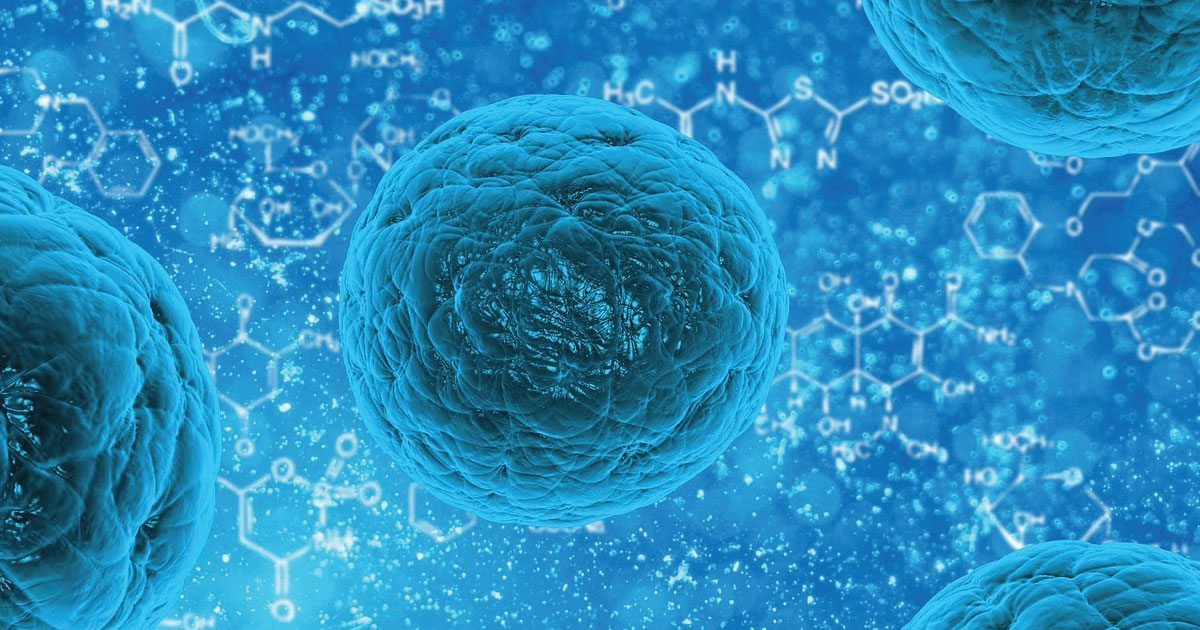Category: Advocacy

Breakthrough Blood Test May Extend Mesothelioma Survival
Just last week, MesotheliomaHelp reported on a corporate partnership for blood test tools that will bring improved results in the detection of key lung cancer mutations. Blood biopsies are shown to be fast and accurate, as well as less stressful on the patients. Now, in another breakthrough using liquid biopsies, researchers report success in the early detection of mesothelioma and screening for multiple cancers using one tool.
Researchers from Johns Hopkins University have developed the CancerSeek blood test that is able to screen for eight different types of cancers and can help pinpoint the location of the tumor. In a recent study of 1,005 cancer patients, the results had a “greater than 99 percent specificity for cancer,” according to a Jan. 19 press release from Johns Hopkins University.
[expert_info author=”Bert Vogelstein, Johns Hopkins University”]”This test represents the next step in changing the focus of cancer research from late-stage disease to early disease, which I believe will be critical to reducing cancer deaths in the long term.”[/expert_info]Although there are screening options for some cancers, such as breast and prostate, mesothelioma, and many other cancers, are diagnosed after the patient goes to a doctor exhibiting some of the signature symptoms of cancer: unexplained weight loss, extreme fatigue and a persistent cough. CancerSeek results had a sensitivity ranging from 69 percent to 98 percent in five cancers that do not currently have any screening test availables, including ovarian, pancreatic, and esophageal cancers.
The test, according to the researchers, looks at eight common cancer proteins and the presence of cancer gene mutations from DNA circulating in the blood. The team developed a “small yet robust panel” that could detect at least one mutation and not lead to false-positives. The test is used for cancer detection only, and does not detect specific biomarkers to drive treatment.
“The use of a combination of selected biomarkers for early detection has the potential to change the way we screen for cancer…,” says Nickolas Papadopoulos, senior author and professor of oncology and pathology at Johns Hopkins.
Pleural mesothelioma, a deadly cancer of the lungs caused by past exposure to asbestos, has a long incubation period where patients may not exhibit symptoms for decades after exposure. By then the disease is already at an advanced, incurable stage.
Early detection of cancer through screening reduces mortality from many cancers, including lung and colon, according to the National Cancer Society. When treating mesothelioma patients, the best outcome is achieved with early detection of the disease by increasing treatment options and improving the patients’ quality of life while battling the cancer.
The tests are still in the early stages of research and are not yet available; however, they may be helpful in diagnosing mesothelioma in the future. In fact, the team anticipates a relatively inexpensive test that may be conducted by a primary care provider.
Read the results of the study in the Jan. 18 issue of the journal Science.
http://science.sciencemag.org/content/357/6349/378

Turning Off Certain Enzymes Could Stop Mesothelioma Growth
Researchers realize that one of the best ways to fight cancer is to stop it from growing and metastasizing in the first place. However, finding the right way to do that is not easy. Now, researchers believe that by turning off certain enzymes they can stop cancer cells from dividing. This discovery may stop cancer in its tracks, and bring new treatments that could extend the lives of mesothelioma patients.
Researchers from Uppsala University, Karolinska Institutet, and the University of Oxford, began to look deeper into finding a way to switch off enzymes as a promising strategy to fight cancer. Tailored drugs are needed to shut down an individual enzyme, but before they could look at new therapies, they needed to better understand how cancer-fighting drugs get to their targets.
The team of scientists turned their focus deep into the cells to a cell membrane protein dehydroorotate dehydrogenase (DHODH), a key anticancer target known to play a role in cell proliferation, according to a Jan. 19 press release from Uppsala University. They conducted a series of tests to determine how lipids, or building blocks of the cell membrane, and drugs bind to the DHODH enzyme. By better understanding this mechanism, they can better understand how to drive drugs directly to the disease.
“To our surprise, we saw that one drug seemed to bind better to the enzyme when lipid-like molecules were present,” says assistant professor Michael Landreh, Karolinska Institutet. In addition, they found that a lipid present in the mitochondrial respiratory chain complex, or the cell’s energy source, binds to the enzyme. The researchers concluded that DHODH may “use special lipids to find its correct place on the membrane.”
Research suggests that tumor metastases are responsible for approximately 90% of all cancer-related deaths. Funding research to find ways to have drugs home in directly on the disease brings hope to every cancer patient. In the case of mesothelioma, an incurable, asbestos-caused cancer, that quickly spreads to other organs leaving patients with few treatment options, halting cancer growth could lead to extended survival. Survival is typically about one year.
“By studying the native structures and mechanisms for cancer targets, it may become possible to exploit their most distinct features to design new, more selective therapeutics,” says Sir David Lane, Karolinska Institutet.
To find out more about this research, read the full study in the Jan. 18 issue of Cell Chemical Biology.
http://www.cell.com/cell-chemical-biology/fulltext/S2451-9456(17)30461-0

Dad’s Enthusiasm For Mesothelioma Advocacy Keeps Me Going
After my father’s surgery at NYU Langone, he stayed with my husband and me for about a week before making the final three hour trek home. It was during that time that we started talking about fundraising for the Mesothelioma Applied Research Foundation. Dad was excited about it, you could see the gleam in his eyes. He loved being a part of events and parties, and this was something personal to him. He was all in!
Our first fundraiser was at Dunbar Community Fest in the town where he lived his entire life. As we began to plan our part, donations started coming in from family and friends. We were overwhelmed by the outpouring of generosity and love. The morning of the event, we set up and began waiting for the crowds to arrive.
I will never forget watching Dad that day. He almost served as the “ambassador” of our little tent. He stood out in front, talking to everyone and greeting them with a smile. Living in a small town, everyone knows each other. My father was well-loved, and the entire community was happy to see him doing so well and present for the event.
When we finally packed up and headed home, Dad was grinning ear to ear, talking about all the people he saw that day, and humbled by all the prayers and well wishes offered to him.
Throughout the rest of his life, Dad was always involved in any fundraisers that we did. Shortly before he passed away, he missed the Community Fest because he was in the hospital. I know he was sad to miss it, but encouraged us to go forward with our booth, knowing it was meant to help others.
He is my inspiration for continuing to help this cause. Even when he was down, Dad was a light to others in ways he never knew. I am proud to continue the work on his behalf, knowing he is smiling down on us from Heaven.

Mesothelioma Advocacy Isn’t A One-Time Gig
Sometimes, I sit and wonder how many different ways I can discuss the importance of advocacy. How many ways can I write about how critical it is to spread awareness of mesothelioma and the dangers of asbestos? Should I just sit back and think that I’ve done enough and let my past words and actions speak for themselves?
The answer is simple… absolutely not! Every single day, someone new is introduced into the mesothelioma community, whether it be as a patient, caregiver, researcher, friend, or concerned citizen. We cannot stop fighting just because we think that daily chatter may already be saturated with concerns.
Advocacy isn’t just for those currently clashing with this horrific disease. It is for those who have lost their lives fighting. It is for the future generations who will hopefully know nothing about mesothelioma, because it has been eradicated forever. It is for everyone.
Even if you think that an effort that you deem as small can’t impact someone, think again! A simple article posted on social media, a comment to an acquaintance, anything can help in this ongoing fight. It is important to keep this battle going and fight until the end, until mesothelioma is only a memory in the eyes of everyone in the world.

Writing About Mesothelioma & Family’s Journey
 People often ask me, “Why do you keep writing and working for a cure for mesothelioma, even though your Dad is no longer here?” Continuing to work for and with the mesothelioma community is not even a question for me. I do it because it matters.
People often ask me, “Why do you keep writing and working for a cure for mesothelioma, even though your Dad is no longer here?” Continuing to work for and with the mesothelioma community is not even a question for me. I do it because it matters.
My Dad is no longer with us, it’s true, but the memories he left me and the impact he had on my life are still vibrant. I do this so that his struggle will not have been in vain. He meant something to so many people, and I want his story to inspire others to not give up and have strong faith in God.
I write because I hope that my family’s journey can bring comfort to someone in need. I hope that if there is a person struggling or looking for an answer, they can find some respite in what we went through. Sure, we went through a hard time, but maybe we can help somebody from going through the troubles that we did.
I work because mesothelioma is already an orphan disease. Why should I orphan it as well? It is because people don’t talk about it that this cancer has become so little-known. They say that knowledge is power. I want to bring about as much awareness as I can to highlight the dangers of asbestos and to work to prevent one more person from suffering from this disease.
It matters. This cause, so close to my heart, that took my beloved father from me, matters. You matter. Your loved one matters. Your story matters. Never forget that, and never stop fighting.
Free Mesothelioma Patient & Treatment Guide
We’d like to offer you our in-depth guide, “A Patient’s Guide to Mesothelioma,” absolutely free of charge.
It contains a wealth of information and resources to help you better understand the condition, choose (and afford) appropriate treatment, and exercise your legal right to compensation.
Download Now